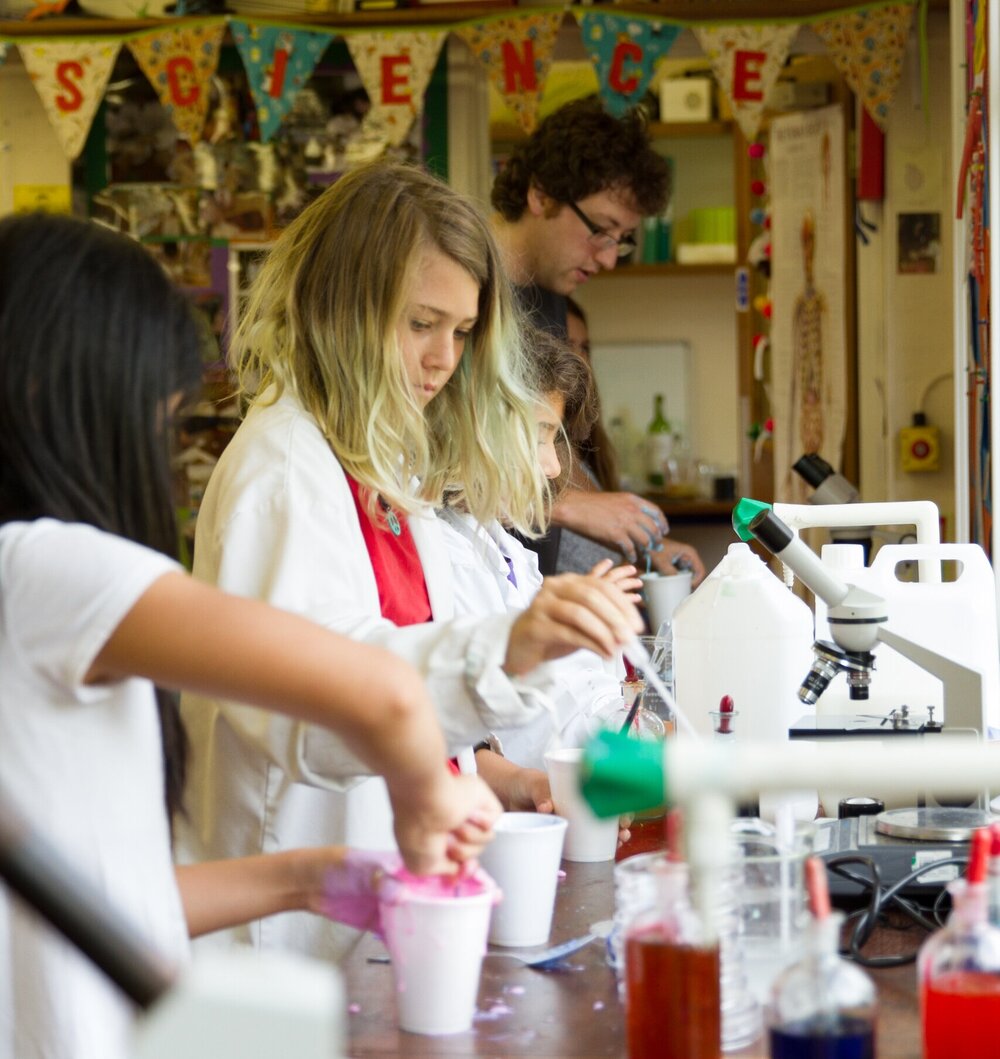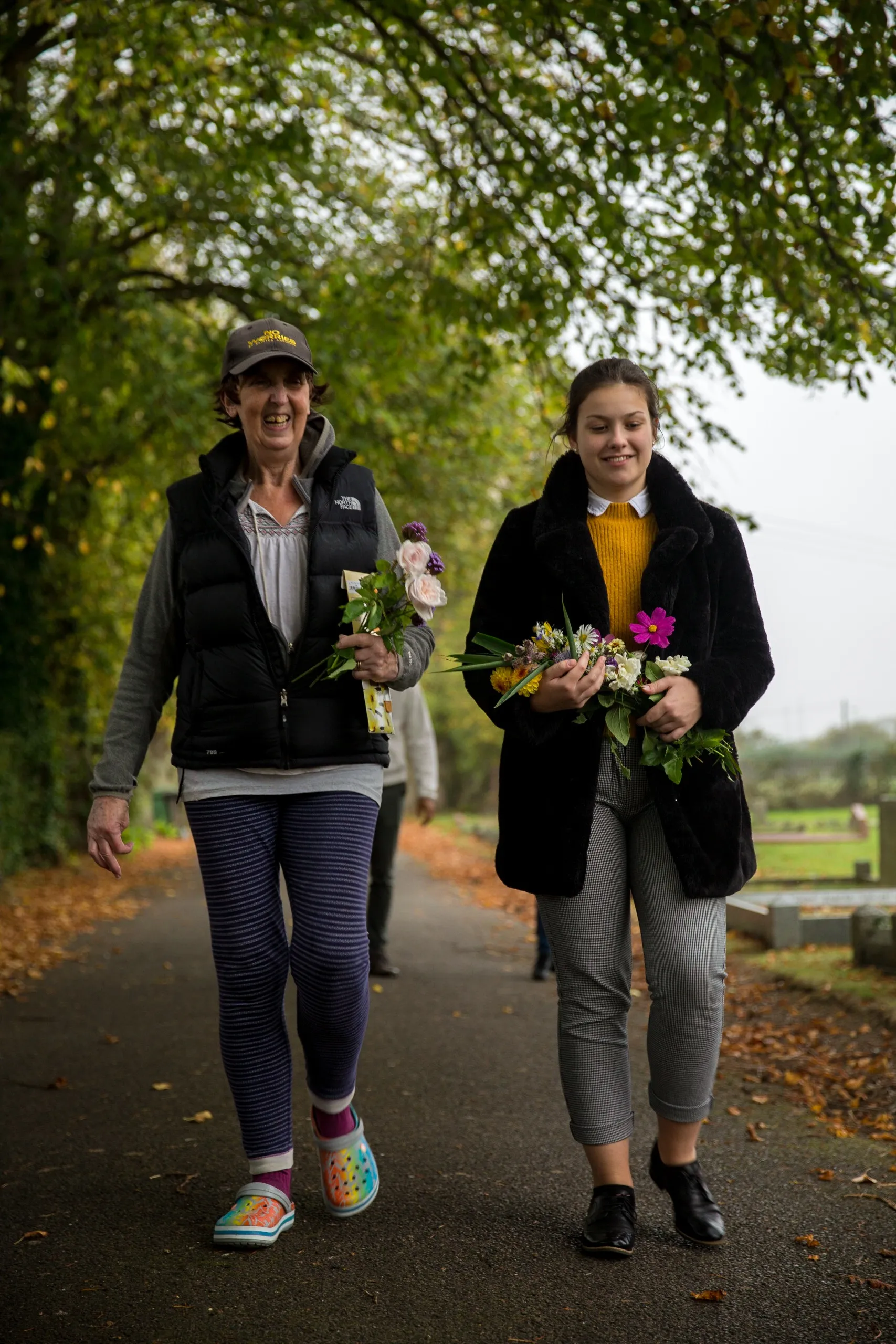Vacancies
- At the moment we don’t have vacancies
“As an art teacher at Summerhill I have felt my own creativity enriched through collaboration with the community and this is by no means exclusive to lessons. I am privileged to work in a place that trusts me to try out things out, to make mistakes, to be myself and to be genuine with the kids.”
“Summerhill gives me the freedom to explore and develop my own interests in the sciences, while also allowing me to deliver interesting and exciting science lessons outside of the constraints of the national curriculum”
House parent
Are you interested in becoming a Houseparent at Summerhill? The following paragraphs will give you an idea of what the job involves and what qualities you might need in order to survive. If the following text does not trigger a flight reflex you just might be suitable for the job.
To succeed at being a houseparent you will need to be patient and accept children as your peers. Life is busy and loud, with personal space and time often being a luxury.
Being a Houseparent is hugely rewarding. Children at Summerhill are great to live with and they appreciate the work their Houseparents do in order to make them feel safe and comfortable. Where, in a more traditional boarding school, there are Housemasters, Matrons and Houseparents, at Summerhill the Houseparent covers the responsibilities of all three positions.
The foremost responsibility is the pastoral care of pupils. This involves taking care of ill or homesick children; being available to comfort, advise and support children in their daily lives; and creating a space where pupils feel safe. On top of that the Houseparent has to manage administrative duties such as keeping medical records, attending Houseparent meetings, etc.. Being a Houseparent also involves some housekeeping duties such as doing the younger children’s laundry and cleaning your area’s common room.
Houseparents work 6 days a week with one regular day off every week and three weekends off every term. The day begins at 8am when the Beddies Officers wake everyone up and ends after Bedtime. The childrens’ bedtimes vary: the one for the youngest children starts at 8:45pm with lights out half an hour later and the older children have their lights out at 11pm (weekend bedtimes are later and the oldest children currently have no bedtime).
Besides the main houseparenting duties most Houseparents choose to teach something or offer other activities as well. Some have also chosen to study part-time towards a degree, however, this might not always be possible. In addition to this all staff at Summerhill share some administrative responsibilities.
Vacancies will be posted on the this website.


Teacher
Teaching at Summerhill is a creative challenge. We want staff to be people first, and active members of the democratic community. However Summerhill is a school, with classrooms and teachers. Children do not have to come to lessons, but as a teacher your responsibility is to deliver an excellent program for those children who wish to attend, to remain neutral towards those who do not, and be encouraging with students who wish to begin learning.
Showing enthusiasm for your subject is a natural part of being you and is encouraged.
It is important that the children know that you value play and classroom activities equally and that you value classroom activities and play equally. No preference one-way or another is to be made or implied by you. Any preference is up to the child to make.
Children will develop a close relationship with you as a teacher, and since classes are very small, your influence can be much greater than in a traditional school environment. It is important for children to know that you value their attendance and enjoy teaching but will not feel upset or in any way annoyed should they miss a lesson or choose not to continue with your subject.
Humour can be an important element in the classroom, and a relaxed and friendly approach is best. This does not mean, however, that lessons cannot be precise and well organised!
There is nothing wrong with exam students knowing that some lesson work outside of class may be helpful to them but your lessons should not be dependent upon the completion of homework.
Your classroom is your own, and students do not have to attend and therefore may be asked to leave if there is disruption (a rare event), or you may ask for an ombudsman case or bring a student up in a meeting. Students, equally, may also ask for an ombudsman case or bring you up in a meeting if for some reason they feel that they are being treated unfairly.
Your classroom is also a professional school space and should be kept well organised; attractive to your taste and safe … Risk Assessments must be done on a regular basis.
Each teacher is, in effect, the head of a department. As such, it is your responsibility to be up-to-date with relevant exam board information, changes in your syllabus, and, at lower Key stages, with the National Curriculum. (We do not have to follow it but need to be up to date about what it contains).
Your curriculum content may be from a government syllabus but in non-exam classes it may be created by you. It is fine to discuss student interests but you do have the final say. Your curriculum will first and foremost interest the students but at the same time should connect with future required skills when necessary. Just plain fun in the subject is also great.
At Summerhill daily observation of work and learning is the best type of assessment. Our classes are so small that this form of ‘Family Observation’ is very accurate. You should, however, be able to produce a written assessment of students who have attended lessons if required. A daily register should be kept, not to track attendance in the traditional sense but so that you can take a look, from time to time, at who is doing what. That way you can ask questions about your classroom, your teaching etc. Are you meeting the needs and interests of as many children as possible? Your lessons must, of course, be accessible to children of all abilities.
It is important to have a personal record of daily lessons and work covered, and of ‘next steps’ … with individuals or with groups. This can be brief, but will give you a path to guide you forward, and also enable you to look back should a student return to your lessons after a time away.
You will work within the staff team and are responsible for creating and maintaining a Curriculum Outline and Schemes of Work. You will also write an annual Self Evaluation and participate with other staff in our Peer Review process.
At the beginning of a term each teacher takes part in Sign-up, where students choose the lessons that they want to attend. Our timetable is created using student sign-up interests. The number of lessons you will have on the formal timetable will depend upon the number of students who choose your subject. This means that some terms you will have a ‘heavy’ formal timetable, sometime a light one. If you have a lot of empty spaces on your timetable it is important to review this: can you offer some students extra lessons? Can you offer other subjects you may be interested in or that might be helpful to the school and students? This can be discussed with Zoë, Will, Henry or other long-standing staff.
If you are a new teacher your mentor will meet with you every couple of weeks during your first term and once a month during the second to see how you are getting along or to answer any of your questions. You may, of course, seek assistance at any time from Zoë or Will, or other long-standing staff.
Finally, since students do not have to attend lessons it follows that they sometimes won’t. You should not take this personally. As a teacher you are there to do your best and create an attractive atmosphere but definitely not there to ‘lure children’ into your classroom. If you find yourself alone then do some creative work, some admin work, pursue a personal interest, or take a break and have a cup of tea or coffee!

